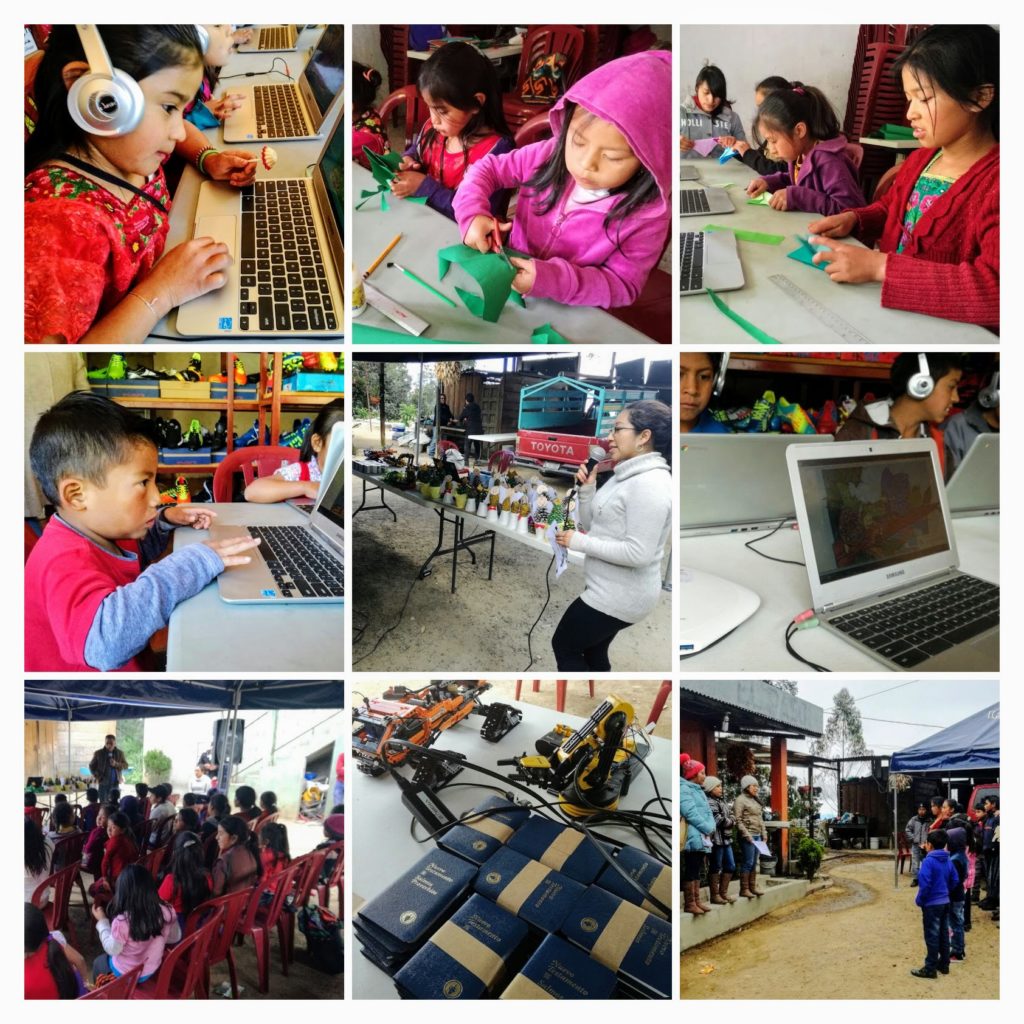This past week as the 2016 school year wrapped up, the Club Extra team hosted a camp in a community about 40 minutes away. The event was organized with the help of the mayor.
Listening to the teachers excitedly recount the week-long experience was evidence that the camp was a rousing success. They made statements like:

- “The kids were humble and eager to learn.”
- “Forty-seven children attended, even though many had to miss a couple of days to help with the harvest.”
- “The children were early.”
- “Some had never touched a computer.”
- “This provided the spark to love learning.”
The camp recharged the teachers’ batteries and was a fitting end to their long year. Now they are on vacation until classes resume in January.
The camp started with a devotional time and then split into groups that rotated through the sessions. The children worked on Chromebooks to learn English, assembled robots and made crafts.
For many of the participants, this was a big deal: A first look at robot kits, and a first chance to see a computer and then use it to hear and learn English. The Google Chromebook computers received programs from a customized local router. This device broadcast the programs to the computers in use. All teaching content was pre-loaded because there was no internet service.
Next year the team wants to take this wonderful camp experience to five communities. Their dream is to offer “Techno Camping” to communities that will provide a place to host the week-long event, and then a smaller place that can act as a permanent and supervised study center. The router and five computers would be left in the new center. Frequent updates to the router would provide content consistent with the users and their needs – Wikipedia, Khan Academy and other quality programs that can be used in independent study.
It’s remarkable to see the teachers take the lead in this program. If these satellite study centers reached 50 students each, it would only take six centers to double the reach of the school at a remarkably low cost. Stay tuned for more on this exciting project.
Join the pilot project.